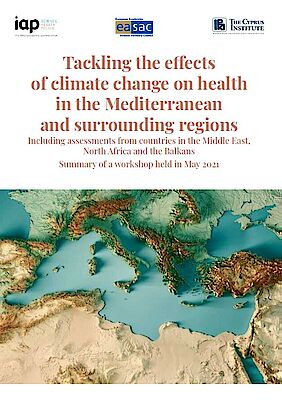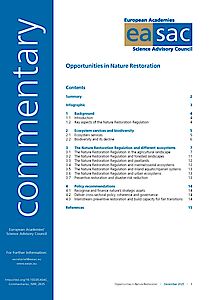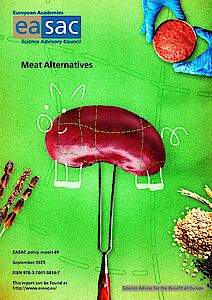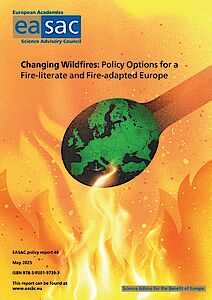Publications
Tackling the effects of climate change on health in the Mediterranean and surrounding regions
Background: Climate change is already affecting human health, and projected changes in climate are expected to increase the burden on climatesensitive health outcomes by multiple direct and indirect pathways. There is significant variation between regions: areas with weaker
health infrastructure will be least able to cope, but the climate crisis will affect everybody. The evidence base is still relatively fragmented and, until recently, policy-makers had tended to ignore this public health emergency.
The Cyprus Academy of Sciences, Letters and Arts is working with the Cyprus Institute on a Cyprus Government-led initiative on climate change in the EMME region (Makri, 2018). This region has particularly high vulnerability to the impacts of climate change, and coordinated action is vital to manage impacts and advance mitigation actions. The EMME-CCI comprises a range of Task Forces reporting in 2021I, one of which is addressing health issues.
Separate from the EMME-CCI, a global project on climate change and healthII was launched in 2019 by the IAP, the global network of more than 140 academies of science, engineering and medicine, to support work by the regional academy networks in Africa, Asia and the Americas (NASAC, AASSA, and IANAS) together with previous activity in Europe (EASAC). The IAP project is addressing regional, interregional, and global issues for understanding the health risks from climate change and is identifying solutions for adaptation and mitigation. Mitigation is action to reduce emissions that cause climate change; adaptation is action to manage the risks of climate change impacts.
To maximise these two parallel initiatives, EASAC with IAP support co-organised a virtual workshop with the EMME-CCI Health Task Force with the aim of bringing together experts from additional countries across an expanded region. The collective aim was to share emerging issues and lessons for the region, assess the relative importance of impacts, clarify groups particularly affected, and focus on solutions, in order to help develop advice for policymakers. The workshop was designed with wide scope, both geographically and in terms of the key topics. These included effects of extreme weather events, water shortage, food security, infectious diseases, air pollution, and health issues of displaced populations.
This report is a summary of the workshop proceedings that focuses on key issues for compiling and assessing the evidence base. To be relatively succinct, only selected literature is cited. Images were chosen from presentations to exemplify some of the strategic issues warranting further discussion within and beyond the region. In addition to collating material that may be useful for the EMME-CCI, this report will contribute to the final, global, report of the IAP project (augmenting AASSA and NASAC regional work in Asia and Africa) and from the EASAC perspective will help evaluate issues for EU policy, including the EU Neighbourhood Policy.
back to overview
































